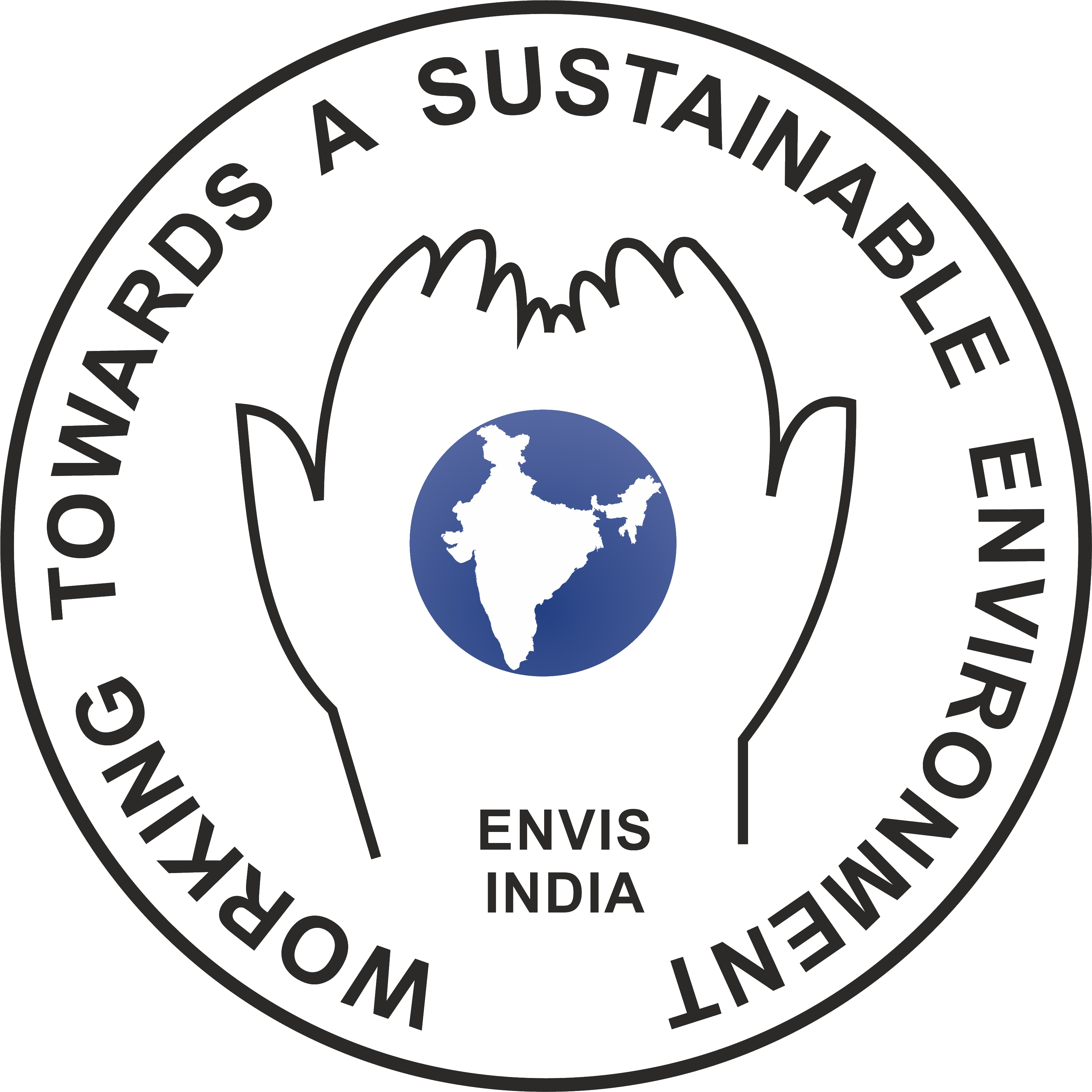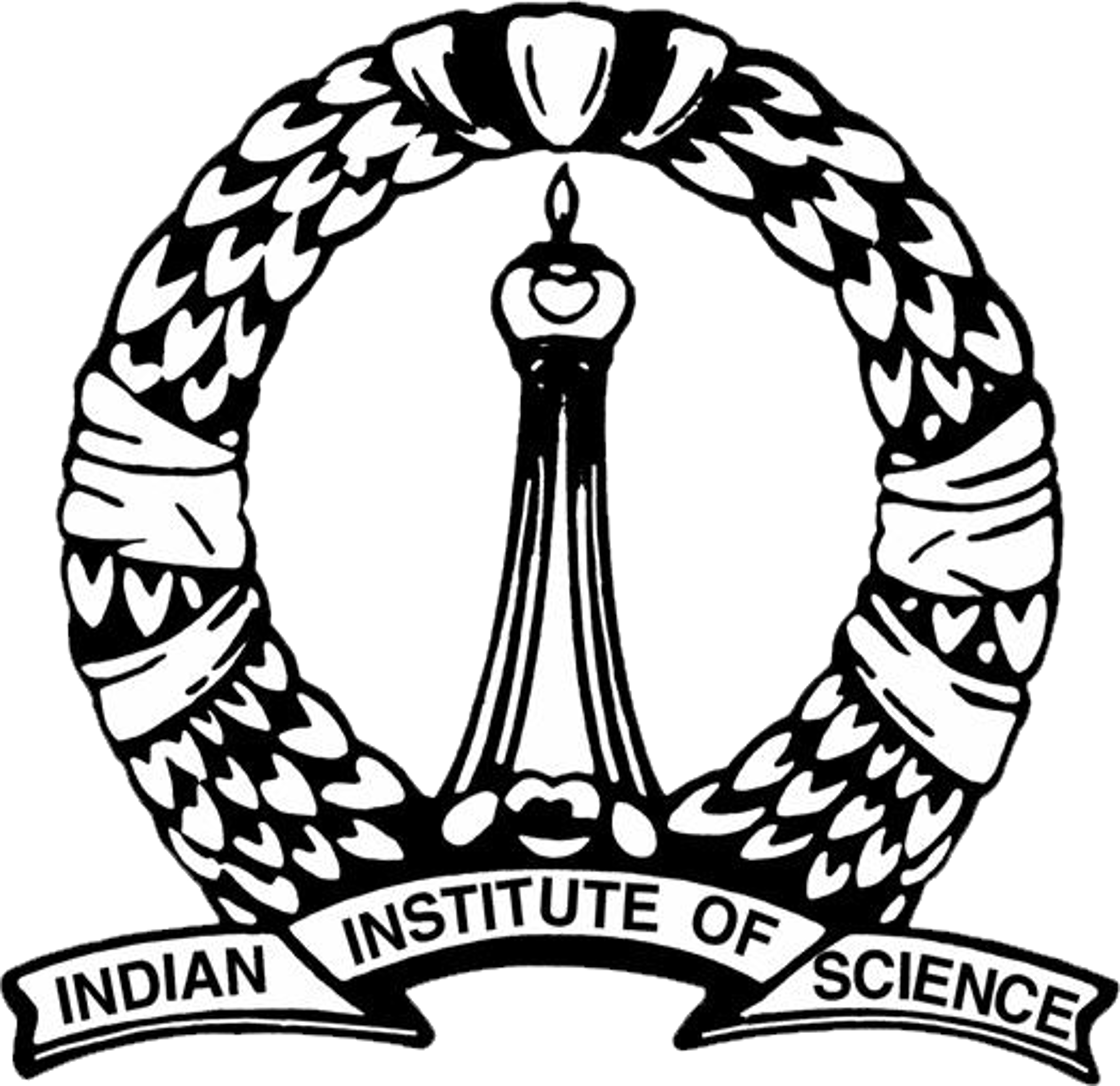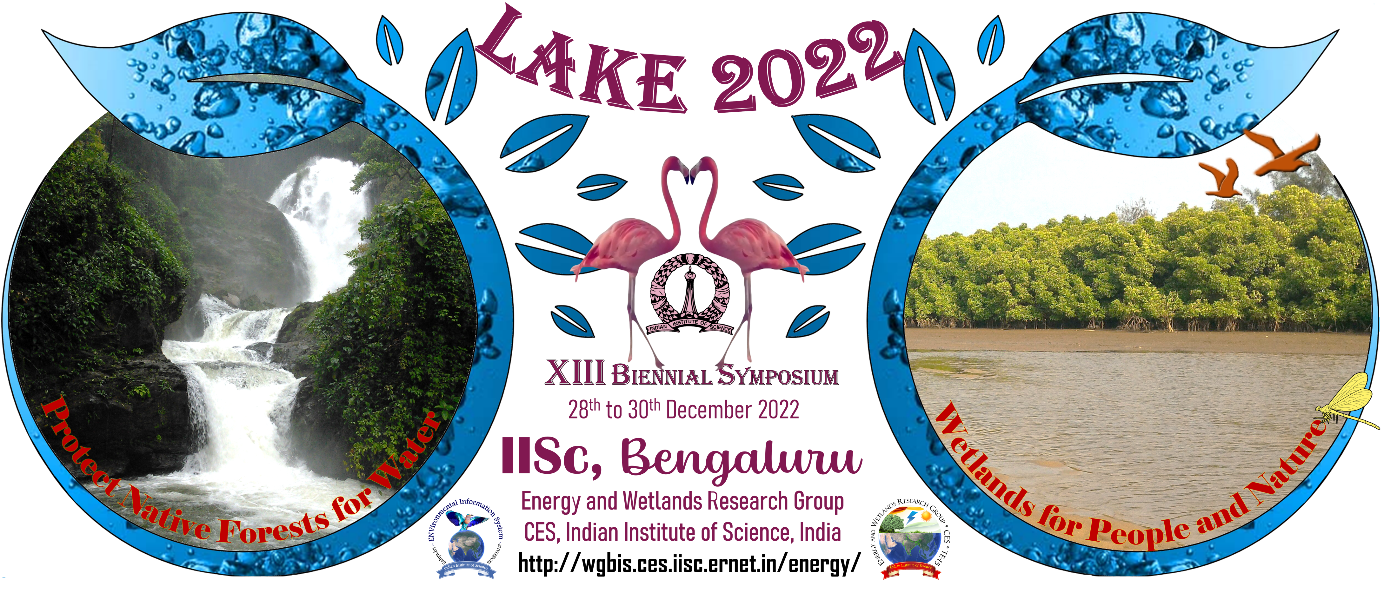LAKE 2022: CONSERVATION OF WETLANDS: ECOSYSTEM-BASED ADAPTATION OF CLIMATE CHANGE
[THE 13TH BIENNIAL LAKE SYMPOSIUM]





LAKE 2022: CONSERVATION OF WETLANDS: ECOSYSTEM-BASED ADAPTATION OF CLIMATE CHANGE
[THE 13TH BIENNIAL LAKE SYMPOSIUM]





Introduction
A symposium focusing on lakes/wetlands, popularly known as “Lake Symposium” was
initiated by the Energy & Wetlands Research Group at the Centre for Ecological Sciences, Indian
Institute of Science, Bangalore in the year 1998. The theme was broadened in 2000 (Lake 2000)
with wider participation of education institutions, Governmental and non-governmental
organisations, etc. The basic idea of the symposium was to bring out the trends in ecosystem
conservation, restoration and management, including the hydrological, bio-physical, people’s
participation and the role of non-governmental, educational and governmental organizations and
the future research needs. Lake 2022 will be the 13thBiennial Lake Conference would focus on
“Conservation of Wetlands: Ecosystem-based Adaptation of Climate Change”.
Wetlands constitute vital components of the regional hydrological cycle. They are highly
productive, support exceptionally large biological diversity, and provide a wide range of
ecosystem services such as food, fibre, waste assimilation, water purification, flood
mitigation, erosion control, groundwater recharge, microclimate regulation, enhance the
aesthetics of the landscape, and support many significant recreational, social and cultural
activities, aside from being a part of our cultural heritage. Wetlands play an important role in
mitigating climate change adaptation through capturing and storing carbon to reduce atmospheric
greenhouse gases (GHG), and providing resilience to hazards such as flooding, storm surge and
coastal inundation.
The theme of World Wetlands Day 2022 is “Wetlands Action for People and Nature”, highlighting
the importance of actions ensuring that wetlands are conserved and sustainably used. This would
demonstrate the vital role of wetlands for the future of humanity and specifically their
relevance towards achieving the new Sustainable Development Goals. Lake 2022 conference would
provide a unique opportunity to increase understanding of the role of ecosystems in sustaining
the food, water and human livelihood with the challenges faced by these fragile ecosystems. The
deliberation involving all stakeholders would help raise awareness about wetlands' importance
and the need to preserve them.
The sustainable development goals have ecological, social and economic aspects for present and
future generations with an equitable share of resources. Conservation of natural resources
through sustainable ecosystem management and development is the key to our secured future.
Sustainable development of a region requires a synoptic ecosystem approach that relates to the
dynamics of natural variability and the effects of human interventions on key indicators of
biodiversity and productivity. Formulating and implementing action plans that best conserve
vital ecosystems require understanding issues, concerns and threats. This requires awareness of
the ecosystem function, goods and services among decision-makers and the public at large.
Collaborative planning between scientists, policymakers and community members is an essential
element of ecosystem-based management. Approaches towards this direction include:
• Fostering participation of all stakeholders to ensure that individuals and organizations are
provided an opportunity to participate in the ecosystem conservation activities.
• Recommending policies and actions that can be undertaken to restore, maintain or enhance
aquatic and terrestrial resources.
• Recommending policies and action plan towards the conservation and sustainable management of
fragile ecosystems such as Western Ghats – water tower and food bowl for peninsular India.
• Nature based solutions to mitigate climate change ranging from the restoration of habitats to
water resource management, disaster risk reduction, and green infrastructure—to address societal
problems. Nature-based solutions provide essential benefits and services to the community, such
as reducing greenhouse gas emissions, securing safe water resources, clean air, and ensuring
food security.
Students, Teachers Corner
Orientation Programs
Videos at YouTube
Ecosystem Monitoring - Design of Experiments Birds Butterfly Insects Macrophytes Algae Water Fish Plants Biodiversity